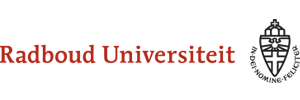American English Phonetics
Another American English Faculty Project
9.4.2 Clitic “to”
Special mention needs to be made of to, as a preposition (to the door), an infinitival conjunction (to go), or as part of words like tomorrow, together. It behaves as though it was part of the preceding word. Such verbal parasites are known as clitics.
It is easy to see that the behavior of to will have certain consequences. As a result, flapping applies to the /t/ in go tomorrow, all day today, fly to Boston.
go tomorrow
fly to Boston
Also t-voicing is frequent in cases like They seem to think…, It‘d be wrong to say…, They’re open today.
they seem to think
hard to believe
Because geminate consonants do not occur inside words, hard to believe, which through t-voicing is /hɑrd dəbəliːv/, becomes /hɑrd əbəliːv/. Because of flapping, it will come to sound just like heart a believe. Can you explain why flapping applies to heart a?
